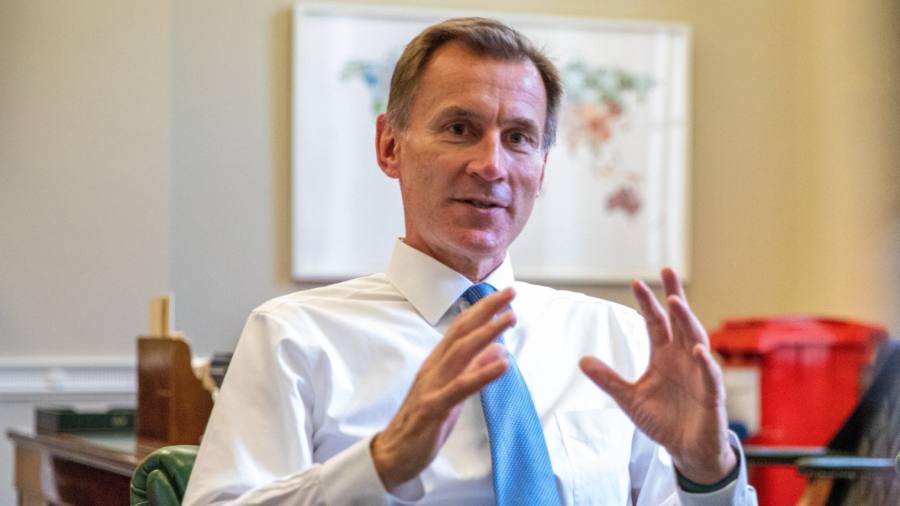
Jeremy Hunt will this week overhaul Britain’s “flagship industrial policy” after warnings that billions of pounds of R&D tax credits for small companies offer poor value for money and are open to fraud.
The chancellor is expected to make the tax credits for SMEs less generous, fearing that without reform their cost could double to almost £9bn by 2027, according to people briefed on next week’s Autumn Statement.
While R&D by larger companies has been significantly enhanced by the tax credits, the system’s use by SMEs has had a much more chequered record, with high profile of cases of abuse.
Earlier this year, prime minister Rishi Sunak promised reforms when he was chancellor, saying that in spite of spending “huge and rapidly growing sums” on the scheme it was not doing enough to boost growth.
The crackdown, part of efforts by Hunt to fill a £55bn fiscal hole, was inspired by a Cambridge university report last year, which asked: “Is the UK’s flagship industrial policy a costly failure?”
Based on Office for Budget Responsibility numbers, government insiders said the SME scheme cost £1.2bn in 2015-16, but has significantly expanded to £4.2bn in 2020-21 and could rise to £8.9bn in 2026-27.
They said Hunt was expected to cut the SME R&D scheme, banking some of the savings but also shifting some money to areas that deliver better value. The Treasury declined to comment.
The move will face criticism from business groups. The Federation of Small Businesses wrote to Hunt last month warning him against targeting a scheme that “has been working, especially one of such importance for growth”. It said that R&D tax credits had been “a huge part of [the SME] success story”, adding that “the attempt to pull the rug out from small business innovation seemed to us a misreading of scant data points”.
Onward, a centre-right think-tank, agreed in a report this month that reform was needed but that “R&D tax incentives have successfully raised business R&D to meet our national target for R&D spending eight years early”.
But the Cambridge report found that self-funded business investment in R&D was between 10 and 15 per cent lower than before the tax credits were introduced in 2000.
Evaluations by HM Revenue & Customs found that the relief aimed at SMEs offered relatively poor value for money, even though it now cost more than the tax credits offered to bigger companies.
Sunak signalled earlier this year, while still chancellor, that he planned to reform the R&D tax credit system, but at the time was seeking to both improve and expand it given concerns that business investment was sharply lower than EU rivals such as France and Germany.
He promised to expand the qualifying expenditures to cover data and cloud computing expenses, but to cut its costs by refocusing the R&D relief on activity carried out in the UK.
But while in the Treasury, Sunak had also made a broader commitment to cut business taxes on investment to productivity, including options to replace the “super deduction” tax break on capital spending that ends this year.
However, those close to talks with officials said they were not optimistic that Sunak would support businesses through investment incentives of this type.
HMRC said: “We recognise that R&D tax relief has been susceptible to fraud, and changes to the system have been announced that will address this.”